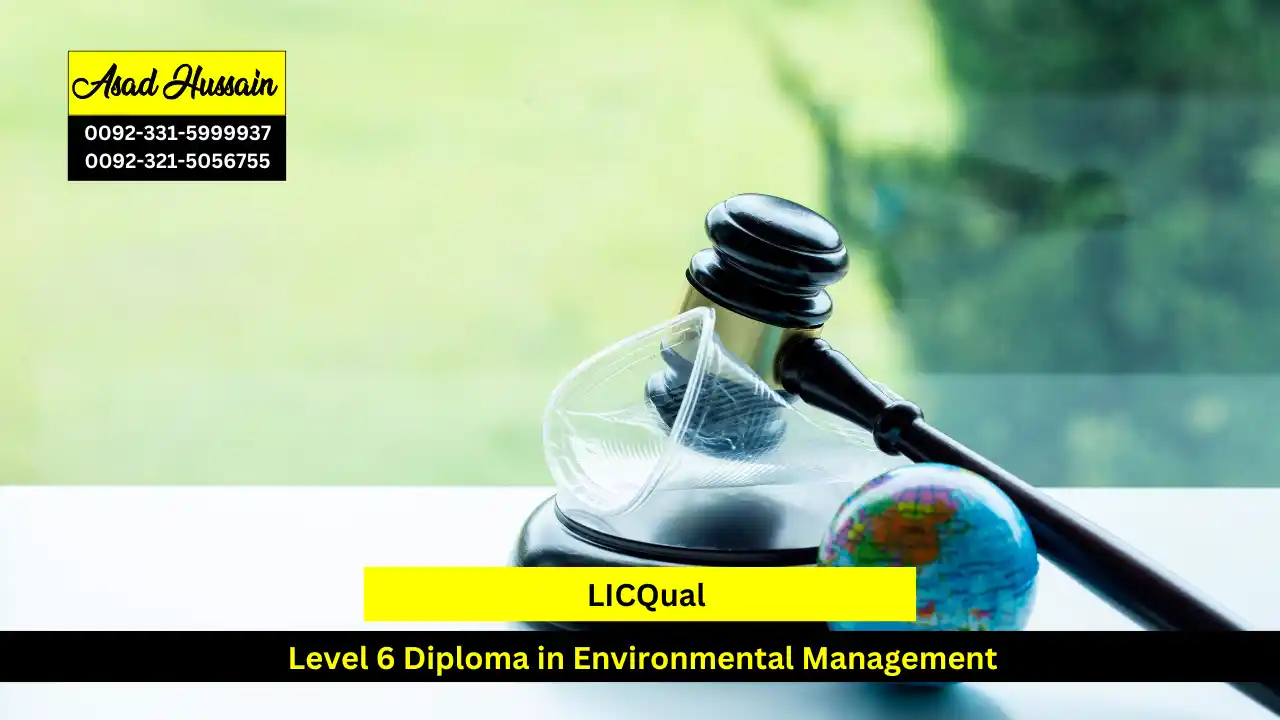As global awareness of environmental issues grows, so does the demand for professionals who can address these challenges and lead the way toward sustainable solutions. The Level 6 Diploma in Environmental Management is a comprehensive qualification designed to equip individuals with the knowledge, skills, and competencies needed to excel in the field of environmental management. This blog post explores the various aspects of this diploma, including its benefits, course structure, and the career opportunities it offers.
The Level 6 Diploma in Environmental Management is a crucial qualification for anyone looking to make a significant impact in the field of environmental management. With its comprehensive curriculum, practical skills development, and global relevance, this diploma prepares you to tackle some of the most pressing environmental challenges of our time. Whether you are looking to advance your career, transition into the environmental sector, or simply deepen your understanding of environmental issues, this diploma offers a pathway to achieving your goals and contributing to a more sustainable future.
Program Highlights
Mandatory Units
- Unit 1. Environmental Sustainability and Principles
- Unit 2. Global Environmental Issues
- Unit 3. Environmental Policy
- Unit 4. Environmental Policy issues
- Unit 5. Environmental Law
- Unit 6. The key environmental Units of International legislation and compliance measures
- Unit 7. The Environmental Management system and sustainability development in a business context
- Unit 8. The collection, analysis and reporting on environmental information and data
- Unit 9. Environmental Management and assessment tools
- Unit 10. Analysis, problems and opportunities to deliver sustainability solution
- Unit 11. The development and implementation of programmes to deliver environmental performances, improvement
The specific entry requirements for a “Level 6 Diploma in Environmental Management” can vary depending on the institution offering the diploma. However, typically, such programs may require the following:
- Educational Background: A relevant undergraduate degree or equivalent qualification in a related field such as environmental science, environmental management, biology, geography, or a similar discipline.
- Work Experience: Some programs might require relevant work experience in the environmental sector, which could vary from 1-3 years depending on the program.
- English Language Proficiency: For international students, proof of English language proficiency is often required. This is usually demonstrated through standardized tests such as IELTS or TOEFL, with specific score requirements set by the institution.
- References: Some programs may require letters of recommendation or references attesting to the applicant’s academic and/or professional capabilities.
- Interview: In some cases, an interview may be part of the admission process to assess the applicant’s suitability and motivation for the program.
It’s important to check with the specific institution offering the diploma for their exact requirements, as they can vary.
- Environmental Sustainability and Principles
- Understand the principles of environmental sustainability.
- Analyze the factors influencing environmental sustainability.
- Evaluate strategies to promote environmental sustainability in various contexts.
- Global Environmental Issues
- Identify major global environmental issues and their interconnectedness.
- Analyze the impact of global environmental issues on ecosystems and human societies.
- Propose strategies for addressing global environmental challenges on a global scale.
- Environmental Policy
- Explain the principles and frameworks of environmental policy development.
- Evaluate the effectiveness of environmental policies in achieving sustainability goals.
- Analyze case studies of successful environmental policy implementation.
- Environmental Policy issues
- Identify current environmental policy issues and debates.
- Critically assess the implications of environmental policies on stakeholders.
- Propose recommendations for addressing emerging environmental policy challenges.
- Environmental Law
- Describe the legal frameworks governing environmental protection.
- Analyze the role of environmental law in regulating human activities.
- Evaluate the effectiveness of environmental law in achieving environmental sustainability.
- The key environmental Units of International legislation and compliance measures
- Understand key international environmental agreements and treaties.
- Evaluate compliance measures and enforcement mechanisms.
- Analyze case studies of international collaboration on environmental issues.
- The Environmental Management system and sustainability development in a business context
- Explain the principles of environmental management systems (EMS).
- Apply sustainability development frameworks within a business context.
- Evaluate the role of businesses in achieving environmental sustainability goals.
- The collection, analysis and reporting on environmental information and data
- Collect environmental data using appropriate methods.
- Analyze environmental information to identify trends and patterns.
- Prepare comprehensive reports and presentations on environmental data.
- Environmental Management and assessment tools
- Utilize environmental assessment tools and methodologies.
- Conduct environmental impact assessments (EIAs) and audits.
- Recommend mitigation measures based on assessment outcomes.
- Analysis, problems and opportunities to deliver sustainability solution
- Analyze environmental problems and identify opportunities for sustainability solutions.
- Develop strategies to address sustainability challenges effectively.
- Evaluate the feasibility and effectiveness of sustainability solutions.
- The development and implementation of programmes to deliver environmental performances, improvement
- Develop environmental improvement programs based on identified needs.
- Implement strategies to enhance environmental performance.
- Monitor and evaluate the outcomes of environmental improvement programs.
These learning outcomes encompass a broad range of knowledge and skills necessary for understanding and addressing environmental management challenges at a professional level.
The “Level 6 Diploma in Environmental Management” is tailored for individuals who are passionate about environmental sustainability and seeking to advance their careers in this field. This course is ideal for recent graduates with a background in environmental science, management, biology, or related disciplines, as well as professionals already working in environmental sectors who wish to deepen their knowledge and skills. It is suitable for those aspiring to roles such as environmental consultants, sustainability officers, policy analysts, or managers within governmental agencies, non-profit organizations, or private industries. The course caters to individuals who are committed to addressing global environmental challenges, developing sustainable practices, and implementing effective environmental policies and initiatives in their respective fields.







